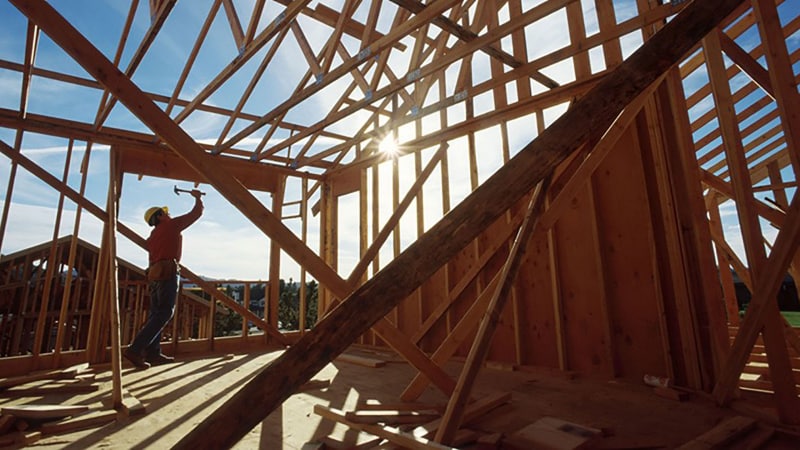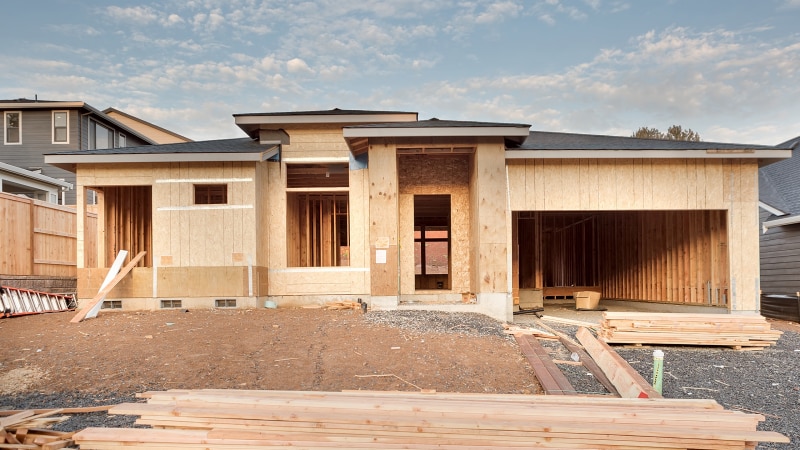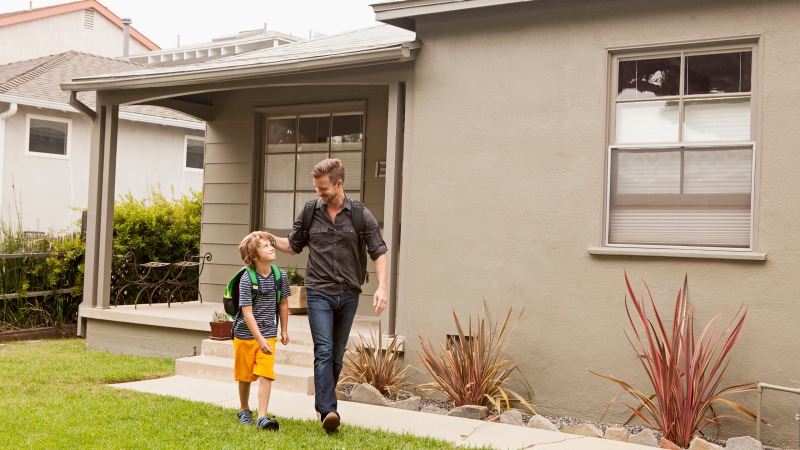Building your own home

What to know before you break ground
Building your own home, Just the way you want it
What if you could custom order your next home, with every nook and cranny built exactly to your specifications? It's often a homebuyer's dream.
Building a new home gave Matt and Marissa Dickerson the opportunity to check everything off of their wish list. For them that meant five bedrooms, four and a half bathrooms and an open-concept living area on the first floor. “We decided, 'Hey, we have the budget and we have the time, let's build it out and get it exactly how we want it,'" says Matt, 29, who lives with his wife in Fulshear, Texas.
Building a house is a very different process from buying an existing home, and it's not for the faint of heart. Here's what you should know before you throw your hardhat into the home-construction ring.
Dig into the contract
It's important to agree up front with your builder on the exact price and what you get for that price. “Maybe you thought you were getting marble countertops and the budget only had formica," says Peter Gaboriault, president of the Fairfield County Homebuilders and Remodeler's Association and a home builder in Westport, Connecticut. “There are 20 of those things you can stumble over. If it's an allowance item" — an amount of money set aside for something that will be chosen later by the homeowner — "the consumer has to go out and make sure the allowance item is going to be enough to buy them what they want."
You're taking a financial risk
With a traditional mortgage, you can often lock the interest rate for 30 to 60 days so you'll still get that rate even if rates rise while you're waiting to close. A new home build takes much longer from start to finish. “You're looking at four to six months or even further out," says Sam Nader, a Chase mortgage banker in Katy, Texas.
Compare lenders
Your builder may direct you to a preferred lender. Sometimes builders own a lender and may offer incentives. It's smart to compare rates and fees from at least three different lenders so you know you're getting the best deal.
Anticipate additional costs
Although you will start building a home with one cost estimate in mind, things may change as your home progresses. “I tell people within the first week that they should add another third onto that price," says Brian O'Neil, a general contractor in Connecticut and owner of HomeSquare, a home maintenance firm. “Most people start to get steamy and mad, and I say, 'It's not that I'm going to add things on, it's that you're going to add things.'"
You'll make many decisions
You wanted a home built to your specs? You're going to have to choose everything. “There are literally hundreds of decisions that need to be made by the buyer," Gaboriault says. “If you're not making them in a timely manner, construction schedules get thrown off."
Use a three-ring binder
Rip out pictures of things you want in your house—the way you want the front door to look, the way you want each room to look. Add pictures of furniture, colors, fixtures, and appliances. “There are so many details to a house that it gets very overwhelming," O'Neil says. “People can tell you a lot about what they don't want, but they're shaky and gray about what they really do want. This gets them organized and focused."
Your credit may be checked several times
Because new construction can drag on for a long time, a lender may check your credit more than once during the process. Remember that new accounts and late payments can affect your credit score, and if you change jobs or income levels, let your lender know right away. “It's happened before where the credit score is a certain amount now but then it dropped," Nader says. “You want to stay qualified."
Have a contingency plan
Even the best builder can be waylaid by weather. “People seem to forget that we had a terrible winter and couldn't get anything done," Gaboriault says. “You're working outside. Your home is not being built in a factory." For the Dickersons, a quick sale of their old home meant that they'd be in between houses while the new one was being finished. “It stuck us in a bind," Matt says. “Our realtor worked it out with the people buying our house that we would lease it back from them until we were ready to move out."
Find a contractor you like
While negotiating costs and terms, make sure you genuinely like the person you hire. “Building a house is a long-term project," O'Neil says. “A lot of things can happen. You want to make sure the guy you're in business with is both a good businessman and a guy you can get along with through the good times and bad times."



